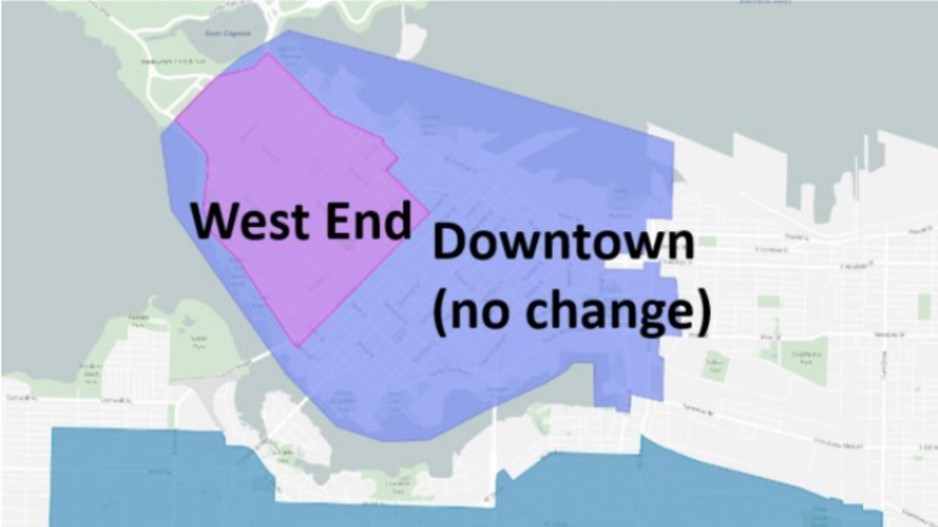Vancouver city council’s plans to reduce parking requirements in two key neighbourhoods delivers on long-standing pleas by industry, but more needs to be done.
Beginning Jan. 1, minimum parking requirements for new developments in the West End and Broadway neighbourhoods will be eliminated. This follows the elimination of minimum parking requirements in the rest of the downtown peninsula in 2019.
Councillors unanimously approved the new move on Nov. 15, which was original proposed by Councillor Sarah Kirby-Yung during the term of the previous council.
“Eliminating parking requirements for new builds is one of the key strategies we’re taking to speed up the development process and build more homes faster,” Vancouver Mayor Ken Sim said in a city statement announcing the change, promising “a direct influence … on the affordability of non-market housing for low to middle-income families.”
The mayor’s office also issued its own statement that characterized the change as part of a generational shift in how people – younger ones, anyway – navigate the city.
“The removal of parking minimums also signals an important generational change in the city, where younger residents are living less car-dependent lives and embracing alternative modes of transportation,” the mayor’s personal statement said.
The West End and Broadway Plan were chosen, the city said, because “most daily needs are within an easy walk, bike or transit trip, the streets are well-regulated and there is an excess of existing off-street parking spaces.”
These factors have been fundamental to long-standing plea from developers to let them build fewer parking stalls in areas served by transit.
“This is not a bad policy, removing the minimum parking requirements, and it’s a good step in the right direction to let the market determine the demands of the market,” said Paul Sullivan, principal and regional leader in the Vancouver office of property tax and software provider Ryan ULC. “You are not going to get homebuilders building towers with no parking where there’s demand for parking.”
According to 2019 survey of overnight parking Metro Vancouver conducted that surveyed 73 apartment properties across the region, there were 42 per cent more spaces than cars in strata buildings and 35 per cent more in rental units. The vacancies were greatest in properties near rapid transit.
Reduced parking requirements also promise lower home prices. Parking stalls now cost approximately $100,000 to build, Sullivan said, up from $50,000 five years ago. (The city estimates construction costs at between $60,000 and $80,000 per stall, with cerain projects seeing costs of $120,000 per stall.)
“It will be faster to build without doing the deep underground excavations, and those are very expensive, and there are a lot of new environmental regulations about underground aquifers and waterways that is making the development of underground parking very complex and even more expensive,” Sullivan said.
However, developers will need to submit a Transportation Demand Management (TDM) plan with permit applications in the two areas. The plans outline how projects will encourage and prioritize walking, cycling and transit choices over private vehicles in order to justify the need for fewer parking spaces.
The measures can include offering transit passes, bike and car share memberships, bike parking and storage, as well as parking unbundled from the units they serve so as to reduce the cost of the housing units.
A staff report on the change also noted that money that would otherwise have been spent on parking stall construction may now be available to fund other kinds of infrastructure the city requires.
“With the improved development economics, there may be opportunities to secure additional development contributions to deliver the necessary infrastructure and amenities to support growth,” the report stated.
And yet there’s no guarantee anything will change, at least for strata properties.
The staff report notes that strata projects provide an average of 1.21 parking spaces per dwelling unit, or about 22 per cent more than bylaw requirement. Since 2019, new downtown projects have continued to build 1.15 spaces per unit.
The greatest impact has been seen in rental projects, where “close to zero” stalls have been built for 717 units constructed.
The city has asked staff to report back on the latest changes in 2024 with a view to further changes in parking requirements.




